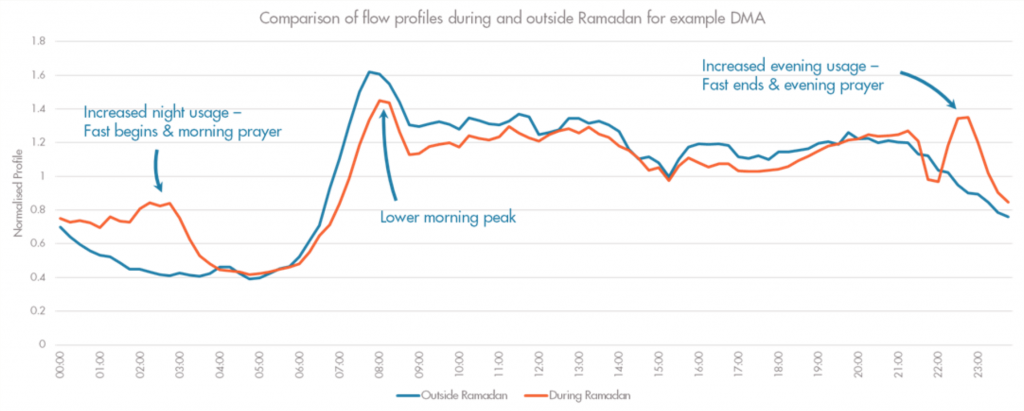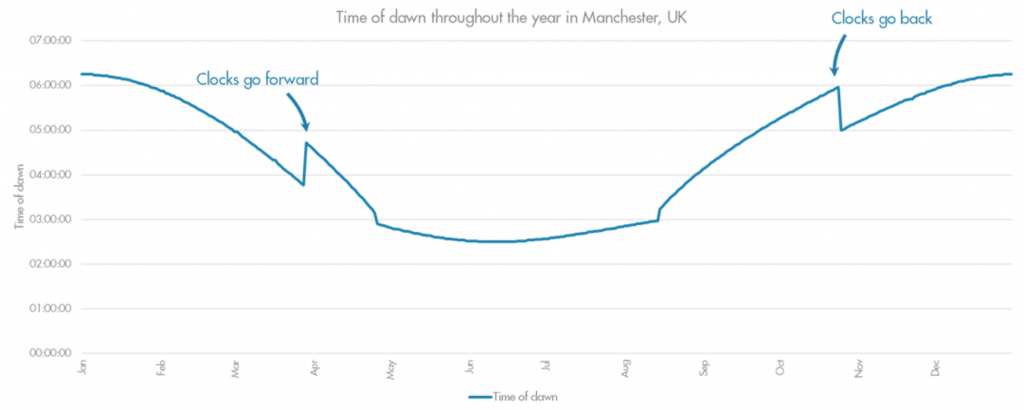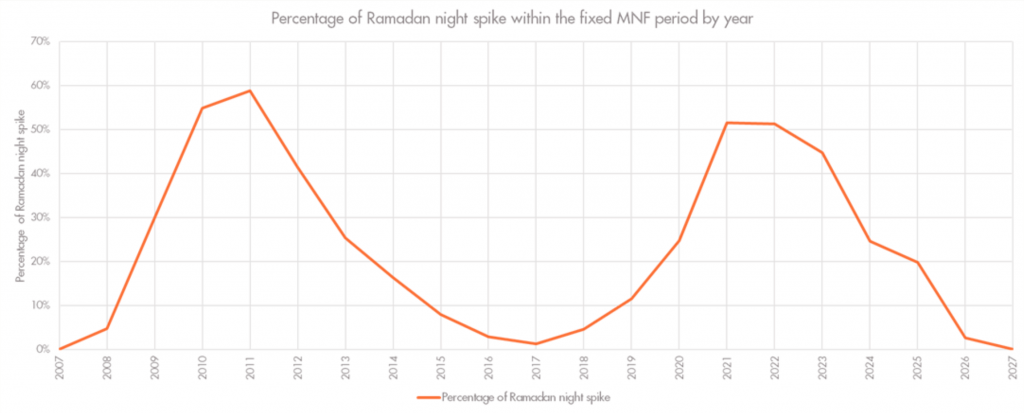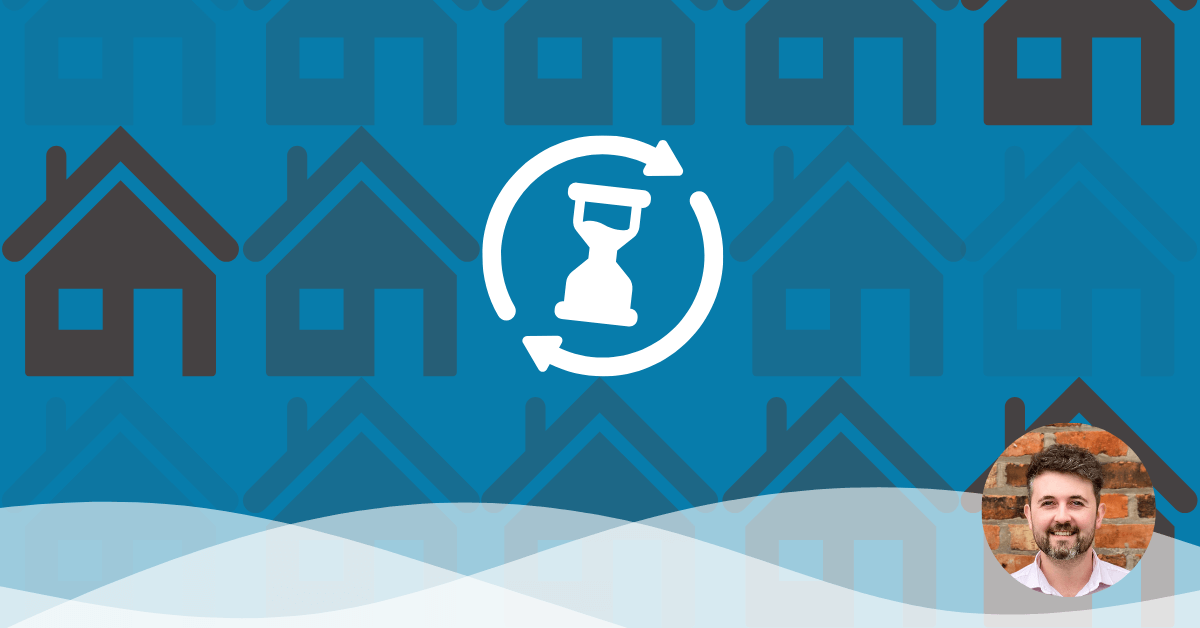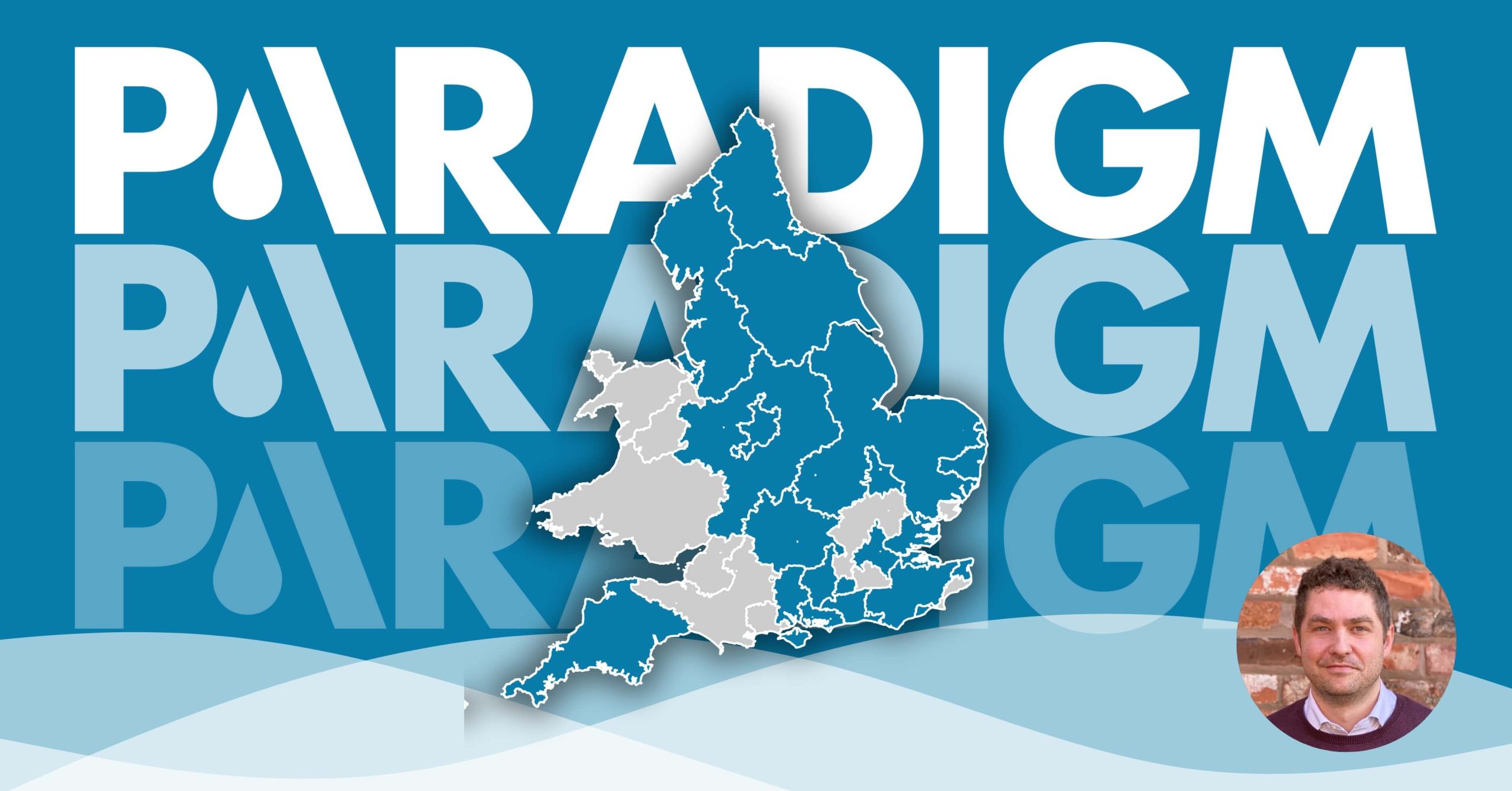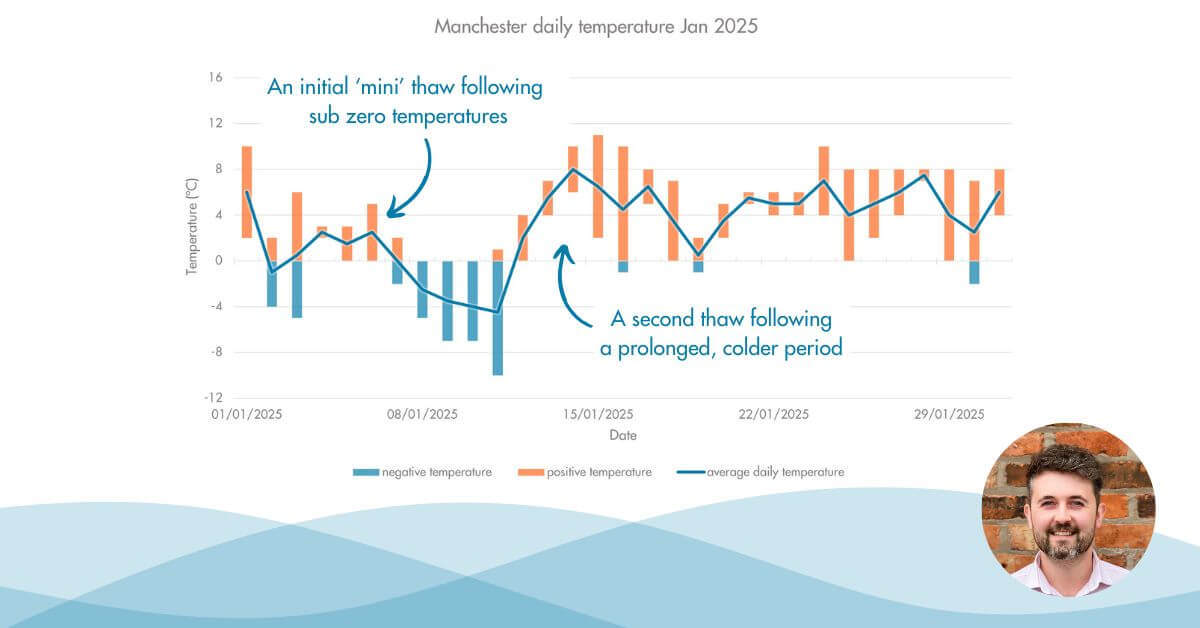There are over 3 million Muslims living in the UK, which equates to approximately 5% of the total population. The areas with the highest Muslim population are Greater London, West Midlands, Yorkshire, and the North West.
Each year, we see a change in water usage in District Metered Areas (DMAs) with a higher-than-average Muslim population during a period that Muslims refer to as Ramadan. During Ramadan, Muslims do not eat or drink anything during daylight hours. They have one meal just before dawn and another after sunset. This change in behaviour is reflected in the water consumption for areas with a relatively large Muslim population (see Figure 1).
Figure 1: Change in diurnal DMA flow profile due to Ramadan
Although Ramadan takes places every year, it is difficult to predict the impact it has on customer consumption. In order to understand how Ramadan varies from year to year, it is important to first understand a little about the Islamic calendar.
The Islamic calendar
The Islamic calendar (also known as the Hijri calendar) was established in 622 CE marking the historic migration of Muhammed and his followers from Makkah to Madinah. The Islamic calendar is used by Muslims to determine Islamic holidays and rituals such as Ramadan and Hajj. The Islamic calendar consists of 12 months, like the Gregorian calendar, however it consists of only 354 to 355 days. It is a lunar calendar, which means that a new month begins when the first crescent of a new moon is sighted. This occurs approximately every 29 to 30 days.
Ramadan always starts on the same date according to the Islamic calendar, although it starts 10 to 12 days earlier each year according to the Gregorian calendar. For example, Ramadan began on 24-Apr in 2020 and is due to begin on 12-Apr in 2021.
Ramadan in the UK
Since Ramadan takes place at a different time each year, it is important to understand how the times for dawn and sunset vary throughout the year, specifically as water usage hinges around dawn and sunset during Ramadan.
The increase in night usage which takes place during Ramadan will depend on when Ramadan falls that year. Figure 2 shows how the time for dawn varies throughout the year in the UK. You can see that dawn breaks around 06:00 during the winter months, however during the summer months dawn breaks much earlier. Night usage will vary with these times.
Figure 2: Time of dawn throughout the year in Manchester, UK
Ramadan and leakage
In the UK, leakage is usually calculated and reported based on the flow into a DMA between the hours of 03:00 and 04:00, when water consumption is at its lowest. The calculation allows for minimal customer usage, which means that any under representation of customer demand will result in a higher reported leakage value.
During Ramadan, water companies risk overestimating leakage if they don’t make accurate assumptions for the impact on customer night use. Especially if the time when Muslims wake for their morning prayer coincides with the leakage reporting period (03:00 to 04:00).
Using our forecasting model (Paradigm) to investigate further, we can see how Ramadan impacts the Minimum Night Flow (MNF). Figure 3 illustrates the varying impact over a 10-year period. This insight is helping our clients to understand the affect of Ramadan and ensure it is accounted for in their reported leakage numbers.
Figure 3: Percentage of Ramadan night spike within the fixed MNF period by year
Conclusion
Although understanding customer behaviour during Ramadan is a relatively complex topic, we have so far obtained a fairly comprehensive understanding of both the historic and future impact of Ramadan on water usage in the UK. However, there are also further complexities to consider, such as the variations within different communities and locations throughout the UK, and the role a mosque plays on water consumption in a DMA.
We are using Paradigm to conduct detailed analysis on DMA net flow data to investigate and identify consumption masquerading as leakage. Ramadan is an example of a single component of our model.
Evidently, there are other factors that affect customer behaviour and water consumption. We are working with our UK clients to investigate the impact of school holidays, university student migration, tourism, and lockdown as a result of COVID-19. Each of these factors will become an additional component of our model.
Are you interested in understanding more about the impacts of Ramadan on water usage, or perhaps finding out how Paradigm can help you manage your network better? Reach out to one of our team who will happily give you a demo.

